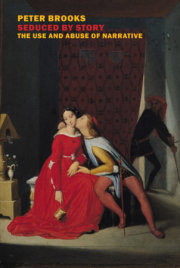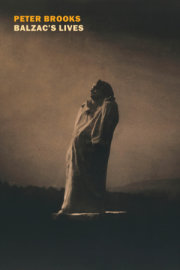"A potent defense of attentive reading and its real-world applications.” —Jennifer Szalai, The New York Times
"Brooks spent most of his career trying to impress upon readers the particular power of narrative…In his most recent book, 'Seduced by Story,' he describes the horrifying feeling of having succeeded all too well." —Parul Sehgal, The New Yorker
“A succinct account of narrative persuasion, offering a solid case for the ambivalent power that stories can have in shaping us as individuals and nations.” —Caterina Domeneghini, Los Angeles Review of Books
“Brooks explores various fields – including psychoanalysis, legal practice and modern political discourse – in which the distinction between narrative and “reality” has been eroded, or even collapsed. . . . It is in this context that a critical faculty – the ability to understand and critique narrative – is of vital importance.”
—Jonathan Taylor, TLS
“Brooks built an influential career arguing that stories are key features of how we all experience ‘human temporality’ and strive to articulate ‘meaning in general.’ This new book is, therefore, a kind of personal as well as intellectual reckoning with narrative turns and what may be their less salubrious legacies.” —Killian Quigley, Australian Book Review
"Society’s obsession with résumé, and its use to construct an aura of credibility, is such a pervasive element of contemporary life that it inevitably implicates even the author and his own field of 'literary humanities.' But that dynamic is exactly what Brooks parses in his terrific critical survey: the essential differences between surface stories and the ways in which they’re constructed." —J. Howard Rosier, Vulture
"A bracing and insightful look at the downsides of reducing everything to storytelling. . . A thoughtful and revelatory analysis of what’s lost when story trumps all." —Publishers Weekly
"For writers, readers, and citizens of the story-addled world." —Emily Temple, Lit Hub
“A rhapsody to the partial suspension of disbelief that allows us to immerse ourselves in novels, but simultaneously and most crucially, a brilliant intervention against the complete suspension of disbelief that allows a citizenry to succumb to conspiracy theories, false-flag narratives, authoritarian fictions. An eloquent and triumphant culmination of Peter Brooks’s lifelong inquiry into the aesthetic and ethical intersection of literature, psychoanalysis, law, and politics. Impossibly good.” —David Shields
“Stories are everywhere—shaping us, shocking us, showing us what really happened (or making it up). Peter Brooks invites us to step to one side of our over-storied surroundings to think about all the ways they work. . . . In the process, he tells a gripping tale of his own.” —Rachel Bowlby
“This is an amazing book, crossing back and forth between literature and politics, illuminating each side by the other. It is written without fuss, continually evocative and surprising.” —Richard Sennett






